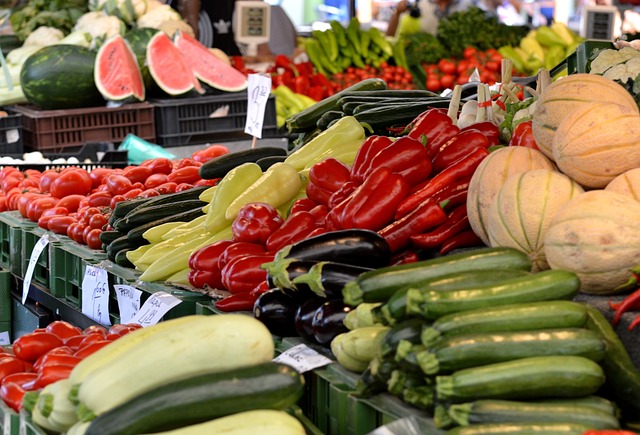Homeowners committed to sustainability are increasingly leveraging yard waste removal and recycling as a cornerstone of their eco-friendly practices. This approach transforms organic waste like leaves and grass clippings into nutrient-rich compost or mulch, enriching soil and reducing landfill waste. By opting for recycling over traditional disposal, households significantly lower their carbon footprint while conserving resources. Yard waste removal services that emphasize recycling play a crucial role in environmental stewardship by supporting local ecosystems, reducing the need for synthetic fertilizers and pesticides, maintaining soil health, and promoting biodiversity. These practices also contribute to cleaner air, preserve natural habitats, and help mitigate climate change impacts. Composting at home is a key part of this circular economy, offering educational benefits and reducing yard waste sent to landfills. Municipal services enhance these efforts by managing organic waste effectively, diverting it from landfills, and producing high-quality compost. Innovations in technology, including biotechnological advancements like in-vivo composting and smart technology integration for optimized operations, are further streamlining and enhancing the efficiency of yard waste removal and recycling systems, making them vital components in promoting a sustainable future and responsible waste management.
Organic recycling within eco-conscious residences is a cornerstone of sustainable living, offering a natural solution for yard waste. This article delves into the multifaceted approach of organic recycling, highlighting its significance in maintaining eco-friendly homes. We will explore the transformative practice of composting, the role of municipal and professional yard waste removal services, and innovative techniques in processing organic matter. Furthermore, we’ll peer into the future of yard waste management, where technology and sustainability converge to advance this pivotal environmental stewardship practice. Join us as we uncover the essentials of yard waste removal and recycling for a greener home and planet.
- Embracing Sustainable Practices: The Role of Organic Yard Waste Recycling in Eco-Friendly Homes
- Composting at Home: Transforming Yard Waste into Nutrient-Rich Soil
- Municipal and Professional Yard Waste Removal Services: A Closer Look
- Innovative Techniques for Organic Matter Processing and Recycling
- The Future of Yard Waste Management: Technology and Sustainability Advancements
Embracing Sustainable Practices: The Role of Organic Yard Waste Recycling in Eco-Friendly Homes

Homeowners committed to eco-friendly living recognize the importance of integrating sustainable practices into their daily routines, including the management of yard waste. Yard waste removal and recycling play a pivotal role in this endeavor. Organic matter such as leaves, grass clippings, and garden trimmings are not mere byproducts of maintaining a healthy landscape but valuable components that can be repurposed to enrich the soil and promote plant growth. By engaging in organic yard waste recycling, eco-conscious households can significantly reduce their carbon footprint and conserve natural resources. This process transforms what might otherwise contribute to landfill waste into nutrient-rich compost or mulch, which supports local ecosystems and reduces the need for synthetic fertilizers and pesticides. Moreover, this practice aids in maintaining soil health, encouraging biodiversity, and contributing to the overall resilience of communities. Yard waste removal services that focus on recycling not only align with environmental stewardship goals but also offer a practical solution for homeowners looking to contribute positively to sustainability efforts. Implementing these services can lead to a cascade of environmental benefits, underscoring the significance of responsible waste management in the pursuit of eco-friendly living. Homeowners who prioritize sustainable practices through yard waste recycling contribute to cleaner air, preserve natural habitats, and help mitigate climate change effects, all while maintaining aesthetically pleasing outdoor spaces.
Composting at Home: Transforming Yard Waste into Nutrient-Rich Soil

Composting at home is an eco-conscious practice that transforms yard waste into valuable nutrient-rich soil, enriching gardens and reducing the need for chemical fertilizers. This process not only aids in the decomposition of organic matter but also significantly contributes to the reduction of greenhouse gases that would otherwise be released through traditional yard waste removal methods. Homeowners can begin by setting up a compost bin or pile, ensuring a mix of greens (nitrogen-rich materials like grass clippings and kitchen scraps) and browns (carbon-rich materials such as leaves and twigs). Regularly maintaining the compost by turning it and adjusting the balance of greens and browns will accelerate the composting process, yielding a dark, crumbly, humus-like product within a few months. This homemade compost supports plant growth, improves soil structure, and reduces the volume of yard waste requiring removal and recycling. By integrating this sustainable habit into daily routines, households can make a tangible impact on environmental conservation while also creating a healthy, thriving garden environment.
Yard waste removal and recycling are integral components of sustainable living, and composting is a prime example of how these processes can be managed at home. Not only does this practice divert yard waste from landfills, but it also supports the circular economy by returning essential nutrients back into the soil. It’s a cost-effective alternative to traditional waste management services and can be tailored to suit any size garden or property. Moreover, composting educates individuals on the lifecycle of organic matter, fostering a greater appreciation for the natural processes that sustain ecosystems. As a result, homes that compost contribute to cleaner air, healthier soil, and a more sustainable future.
Municipal and Professional Yard Waste Removal Services: A Closer Look

Municipal yard waste removal services play a pivotal role in maintaining the ecological integrity of communities by effectively managing organic waste from residential and commercial properties. These services are designed to collect organic matter such as leaves, grass clippings, branches, and twigs, ensuring that it is recycled rather than sent to landfills. By composting this material, these programs not only reduce the amount of waste going into landfills but also produce nutrient-rich soil amendments that can be returned to the land, promoting plant growth and soil health. Residents who utilize these services contribute to a sustainable cycle of waste reduction and resource recovery, which is beneficial for both the environment and local ecosystems.
Professional yard waste recycling companies further enhance this process by offering specialized services tailored to the needs of large-scale properties, such as farms, parks, and estates. These entities often employ advanced composting techniques and technologies, ensuring high-quality recycling of organic matter. They may also offer educational programs to promote best practices in yard waste management among clients. By focusing on the efficient conversion of yard waste into valuable compost, these professional services not only aid in the reduction of greenhouse gas emissions but also support the production of healthy, chemical-free soil, thereby fostering eco-friendly landscaping practices that align with the ethos of sustainable living.
Innovative Techniques for Organic Matter Processing and Recycling

Homeowners committed to sustainable living practices can significantly impact the environment by engaging in organic matter processing and recycling. Traditional yard waste removal methods often involve transporting organic materials like leaves, grass clippings, and garden trimmings to municipal composting facilities. However, innovative techniques have emerged that allow for more eco-friendly and efficient processing directly on-site or within the community. These methods include composting, vermiculture (using worms to break down organic matter), and anaerobic digestion, which not only recycle yard waste but also produce valuable byproducts such as nutrient-rich compost and bio methane that can be used to power homes or communities.
The adoption of these sustainable practices is crucial for reducing landfill use and mitigating greenhouse gas emissions. Composting, in particular, is a proven method for recycling organic materials. It transforms kitchen scraps and yard waste into soil amendments that enrich the soil, reduce the need for chemical fertilizers, and promote healthy plant growth. Vermiculture takes this a step further by utilizing composting worms to accelerate the decomposition process. Anaerobic digestion, on the other hand, captures methane emissions during the breakdown of organic matter in an oxygen-free environment, which can then be harnessed as renewable energy. These innovative techniques not only support eco-friendly homes but also contribute to a healthier planet by recycling organic matter and reducing waste.
The Future of Yard Waste Management: Technology and Sustainability Advancements

As eco-conscious living becomes more prevalent, the management of yard waste has emerged as a critical component of sustainable practices in homes across the globe. Innovative technologies are revolutionizing yard waste removal and recycling, offering robust solutions to the challenges posed by organic matter that would traditionally be disposed of. These advancements not only enhance the efficiency of yard waste processing but also contribute significantly to the circular economy by transforming what was once considered waste into valuable resources.
Biotechnological breakthroughs have led to the development of in-vivo composting methods, where microorganisms are harnessed to accelerate the decomposition process in a controlled environment. This method not only reduces methane emissions that are typically associated with landfill decomposition but also yields high-quality compost faster than traditional composting. Furthermore, the integration of smart technology into yard waste management systems enables homeowners and municipalities to optimize collection schedules, route logistics for removal, and monitor the composting process remotely, all contributing to a more streamlined and sustainable approach to managing yard waste. These technologies are paving the way for a future where yard waste is not just removed from homes but recycled into nutrient-rich soil amendments, thus closing the loop on organic material and promoting eco-friendly home practices.
homeowners and municipalities alike are increasingly turning to yard waste removal and recycling as a cornerstone of sustainable living. By implementing composting practices at home, innovating in organic matter processing, and leveraging advanced technologies, we can effectively transform waste into valuable resources, enriching the soil and promoting eco-friendly habits. The future of yard waste management holds great promise, with ongoing advancements set to enhance both environmental health and community well-being. As the article has shown, embracing organic recycling is not just a responsible choice but a pivotal step towards a more sustainable world. It’s a clear indication that through conscious actions and collective efforts, we can make a significant impact on the planet’s well-being.






